Top Tips For First Time RPG Game Masters!
August 5, 2019 by crew
James: Many gaming groups have one player who consistently runs games but often never gets to play. I’ve often asked my group why nobody else wants to run a game and the general response is that they wouldn’t know-how and that it’s quite an intimidating task for a first-timer.
With that in mind, we wanted to share some of our tips for running games.
Pick A System That You Are Comfortable With
J: When you’re running a game people are going to look to you to tell them what they’ll need to roll, expecting you to be able to resolve conflicts, describe the range of vistas and locations they will encounter, play the role of the wide cast of characters the players encounter, and of course design the plot of the game. This is a lot easier to do if you know the system and it’ll be simpler to resolve a situation without it becoming a frantic dive into the books looking for obscure rules (how long can your character hold their breath underwater based on their sturdiness for example). Often this will mean running a game which you have played before.
Chris: But what if you are a first time GM and this is a brand new group, and none of you have run an RPG before? Do not fret. Many RPGs these days have quickstart scenarios and published adventures, and often these are written to showcase the core rules of the game and to ease you into the rules. To run an RPG game you don’t need to use all the rules. Some you can just agree to exclude as they are complex and a distraction to the main gameplay. Published scenarios are of course also a perfect resource, not just to run as is, but to pick apart and reskin for your own campaigns, or to use as a guide to designing your own.
Make Judgement Calls To Keep The Gaming Moving
J: A game that gets bogged down in rules referencing will kill your pacing. As the GM you’re an enabler letting everyone have a fun time, so when a situation comes up that you aren’t sure how to resolve then come up with a house rule to resolve it.
These house rules can stand until the end of a session if you want to look into it for future occurrences, or you can stand with those house rules if it’s a situation that’s likely to occur often in the future (what happens with a fire elemental wrestler burning things he wrestles, there’s going to be a lot of toasty scuffles in their future and you might want to establish a long-standing rule rather than debate each instance).
C: Often choosing what roll to make in these situations is best resolved by defaulting to the core rules of the game. Agree with the players the core skill, or attribute, that describes the action, and set the difficulty and roll the dice. Now the action in question might have more elaborate rules within the game (hello there grapple rules...), but this really all comes down to if you want to run the game in a simulationist manner, or a narrative manner.
If You Make A Judgement Call It Doesn't Set An Unshakable Precedent
J: You might make a decision at one point to keep the game moving, and sometimes a player might try and use this later to attempt some bizarre shenanigans.
As GM your word is law but you aren’t bound to it, rules are flexible. If a rule you’ve used to resolve an edge case would be exploited later you’re entirely within your rights to resolve it differently. Maybe you’ve learned more about the system or realised later that it could have a detrimental effect on the campaign. The rules are a guideline to facilitate fun stories and drama and to create tension and a sense of risk; not some abstract means for characters to attempt things that go against the logic of the setting and the spirit of the game.
It’s worth noting that you’ll want to avoid flip-flopping constantly on rulings because players rely on a feeling of consistent rules to understand how they can interact with the world. The best way to mitigate this in long campaigns is to let people know at the start of a session if there’s a ruling which might affect regular play that you are changing, and so this stops someone getting into a position where they’re relying on an expected old ruling to resolve a situation only to find it fizzle out from under them.
C: This flexibility is not just limited to game mechanics, but information. Don’t be afraid of retroactively change things (retcon) if you feel you forgot to inform the players about a piece of information that a character should have said, but you forgot to say as GM.
Course Correct During Play
J: If you’re not familiar with your gaming group then at some point you are probably going to be surprised when they do something ridiculous and veer off from your expected story. At this point, you may be panicking, but these are some of the best moments for a storyteller as you can spin events to bring them back to your plan or adjust your story to the player's actions. Maybe they suspect a character as being suspicious and want to begin investigating them? Perhaps they go after the wrong suspect and murder the wrong person? Perhaps they put too much importance in an artefact?
These are great opportunities to add something to your story and the players are also unwittingly feeding you hints at the kind of story they think they are taking part in. With the previous examples, you might have a multi-floored dungeon to crawl through but if the players are trying to seek out spies in the king’s court it might be time to adjust your story to be a bit more political. Alternatively, you can use the player's suspicions to draw them back toward the content you have already planned. Maybe this spy is trying to find out about a magical item in your deadly dungeon and trying to sell it? Now your party has a reason to delve into the dungeon, they’ve got to stop the item falling into the wrong hands.
C: In effect, there is a balance here with altering your plot to fit the players, and also reeling them back into your plot. You are in effect trying to give the players the sense they are making choices while fitting the plot and setting to these choices. The core thing you should never do is make the players feel like they are being robbed of agency. If they happen to come up with a great plan and pull it off, stopping the demonic overlord, don’t arbitrarily have the demon just survive. There must always be prices to pay and rewards. Robbing players of both it a quick way for them to lose interest in the game.
Pick A Pre-Written Campaign Or Make Your Own?
J: I’m personally in favour of writing your own campaigns and stories as it’s easier to understand the scope of your NPCs and which story threads tie together different events. If you’re creating your own campaigns then it’s a good idea to start with some short-length stories, as these can always be expanded if your group hits its stride, while short narrative arcs allow you to practise establishing a situation and pacing the group’s progress towards its conclusion.
That being said pre-written stories do help give you a good opportunity to practise your storytelling without the burden of the full prep work. You will still need to read the adventures to understand your NPCs and encounters, but you’ll have environments, NPCs and the narrative flow already established.
C: Related to this is whether or not you use a structured setting and plot, or you go sandbox. The former requires perhaps more preparation, with the danger of content not being used as players deviated from the expected story, while the latter requires perhaps less content pre-written, but you are flying by the seat of your pants a lot more. Episodic, Campaign, or Sandbox all require different skills and levels of work both in and out of the game, and not all games work for these options.
Take Credit
J: Sometimes a player will do something and you can link back in an old NPC, situation or prophecy spun from the seat of your pants. In these situations, a player might attribute you an omniscient level of knowledge, when this happens do not dissuade them of that notion. Players will start reading interconnectedness into your world and if you listen to them they can often give you some amazing ideas to incorporate into your story (what if these two characters are related. What if this person is actually a villain in disguise?).
C: Conversely, sometimes show players that things are often much simpler than they thought. The plot, with the information they have, is actually that straight forward. By demonstrating this you make it easier for players to take decisive actions, and so able to act proactively, and in return be rewarded for the risks that they take.
Spotlighting
C: Running games is not just about designing the setting and the plot, but also about creating a framework that the players operate in so that they all have fun. Players want a chance to shine, to feel as if they are unique. Encourage players to be diverse - within the scope of the story that you are telling. Likewise, make sure all players get a chance to act and interact. Some players will have different ways of doing this - not everyone is a seasoned actor no matter what you think after watching Critical Role. Some players enjoy solving puzzles and plots, while others just like kicking arse in combat.
J: Spotlighting can be tricky if your party doesn’t coordinate when creating their characters. If you are playing a game with rigidly defined roles it’s worth making sure your group talks together while working through character creation or else you could end up with a team that overlaps their skillset. This is also another great opportunity to see what kind of content players are expecting to participate in and check that your group plays together well (if they want to be a big strong barbarian so I can throw stuff around then it’s worth making sure there’s opportunities to flex those muscles).
Confidence
C: We are not all Jason Carl or the team at Critical Role. Running RPGs is like improvised theatre and performance art combined with resource management and team-building exercises. But do not worry. We all start from the same place, and practice makes perfect. Over the course of the first few sessions, the rules become second nature. You might have players who enjoy helping out, looking up rules while you focus on the scene-setting. But ultimately be confident - or at least exude the aura of confidence - because ultimately you are the director and umpire and in control. Confidence breeds more confidence, and players read into that confidence. Playoff it, learning to be more confident in their own roleplaying.
Getting The Pack Together
J: For your first time running a game I’d lean heavily towards playing with people you know rather than running a pick-up game, that way you can use what you already know to gauge who you think could work together.
Take charge of setting up play sessions; it’s down to you to get the ball rolling but hopefully, once it’s underway your group will help with scheduling as they get invested in your game.
It’s also useful to let everyone in the group know who else is playing beforehand. You don’t want a surprise at the table in case there is unknown interpersonal drama.
C: Now for perhaps some hard aspects of running RPGs, and that is the people management aspect of it. Ultimately you run games for both your own fun and that of your players. That means if you don’t like the game, don’t run it. Also, if players are not that interested in the game, then be polite, ask if they are enjoying the game, and if not perhaps they take a step back and not participate. Misery loves company after all, and it just takes one bored player to bring the others down.
Perhaps the next important thing is establishing what content is OK for the table. Not all players enjoy the same things - especially if we are considering horror, gore, violence, and romance. You need to have an honest conversation, and calibrate the group. What content is a no go? What content is OK to be suggested, but not explicitly described? Some of these topics are quite hard for some players to bring up and say directly so you may want to make use of the idea of the X-card, or just a simple signal to say “this is too on the nose/too close to home for me”.
Another thing to consider is that some players take enjoyment in the game at the cost of your own fun and the other players. Just because we are all gamers, and like Sci-Fi, horror, or fantasy, does not mean we automatically accept other player’s bad behaviour and have to put up with it. That is the Geek Fallacy.
Ultimately if you follow the suggestions above you should be able to create a gaming group, and run an RPG, in a fun manner that everyone is satisfied and long campaign can be enjoyed.
By Chris Handley & James Valadas Marques - Darker Days Radio
Art by Wilson Lin, Wojtek Fus, Julia Vasilyeva, Aleksi Briclot, Rostyslav Zagornov
What tips do you have for those running roleplaying games for the first time?
"As GM your word is law but you aren’t bound to it, rules are flexible..."
Supported by (Turn Off)
Supported by (Turn Off)
"Perhaps the next important thing is establishing what content is OK for the table..."
Supported by (Turn Off)




































![Very Cool! Make Your Own Star Wars: Legion Imperial Agent & Officer | Review [7 Days Early Access]](https://images.beastsofwar.com/2025/12/Star-Wars-Imperial-Agent-_-Officer-coverimage-V3-225-127.jpg)








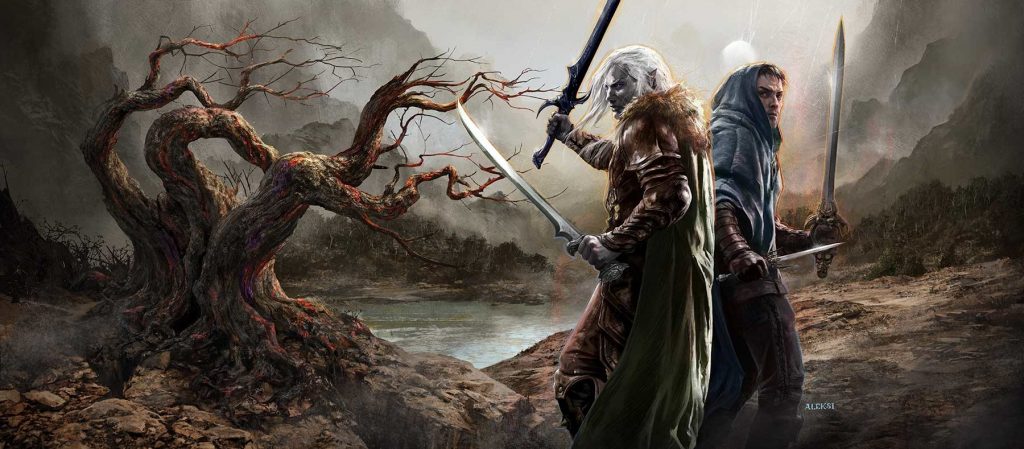
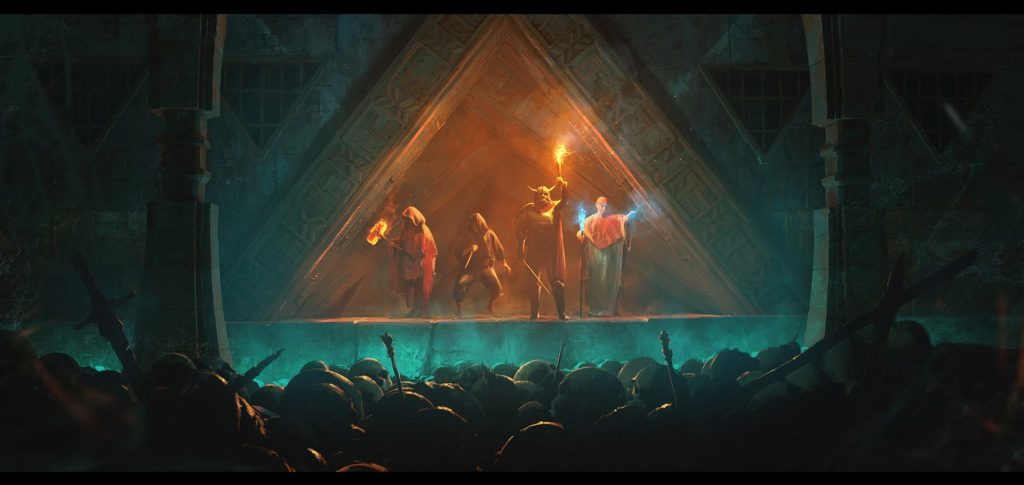

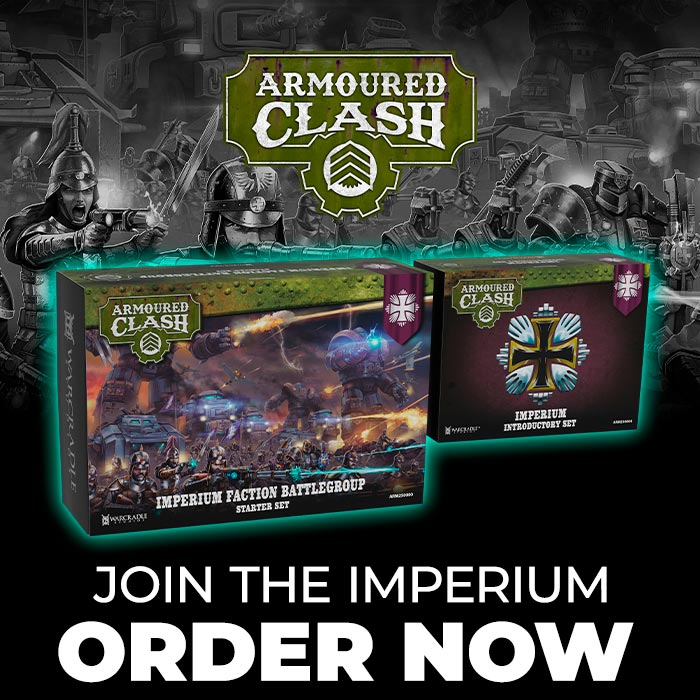


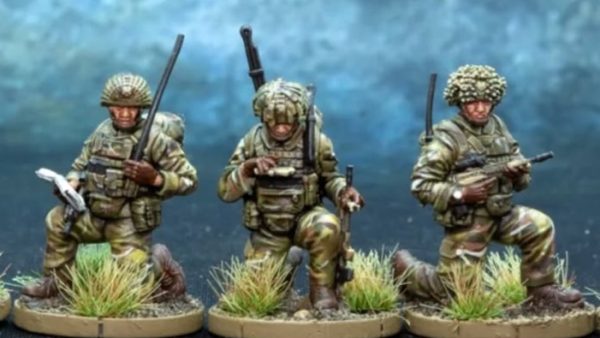
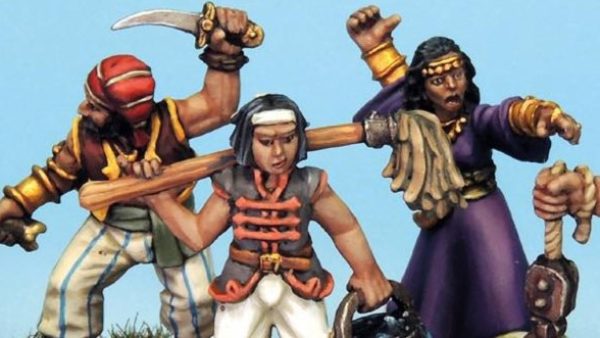

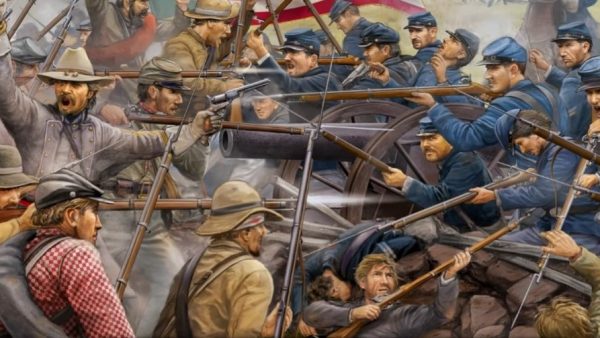
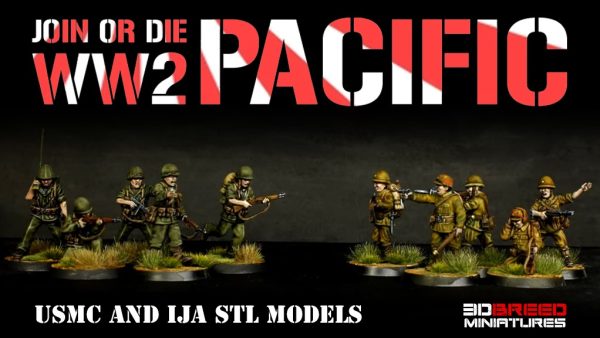




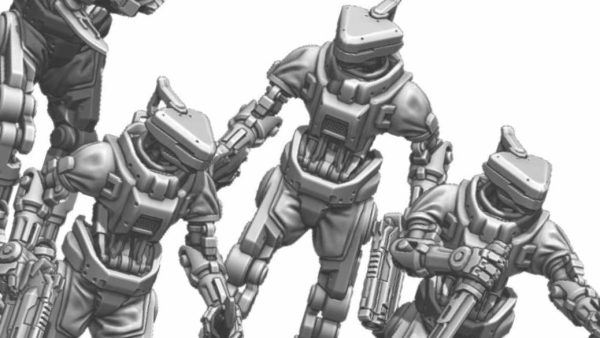
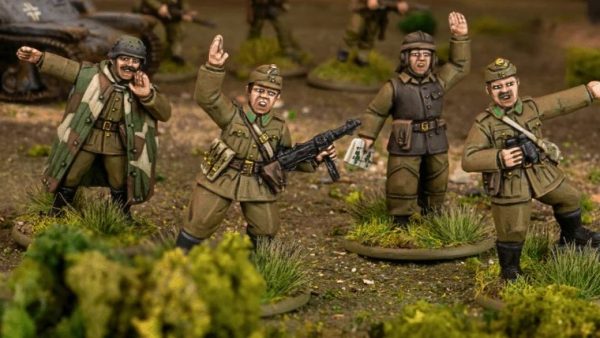
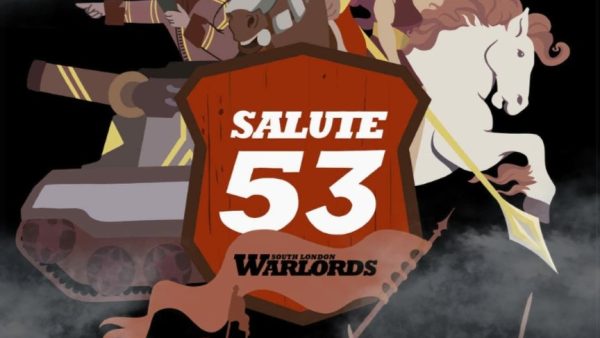
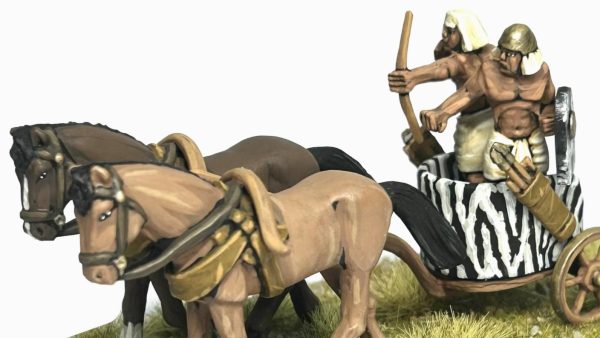


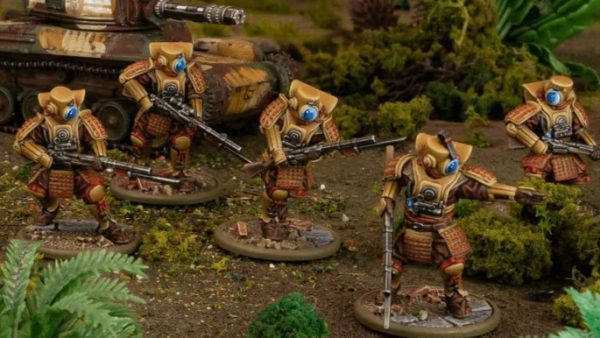

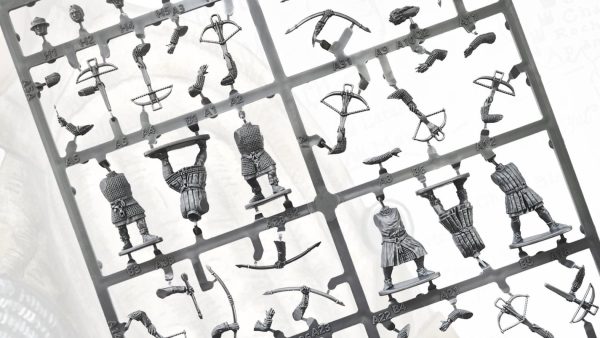

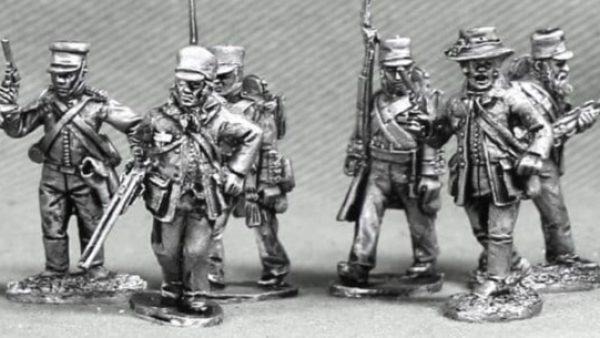
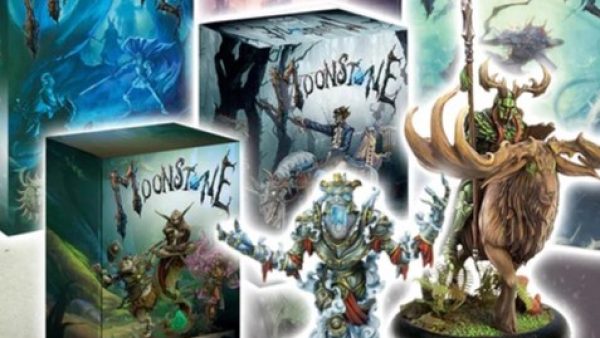

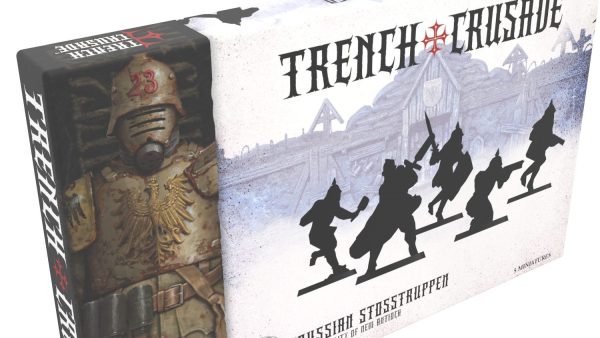
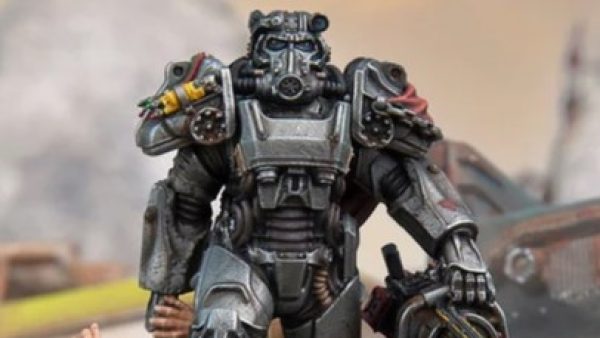
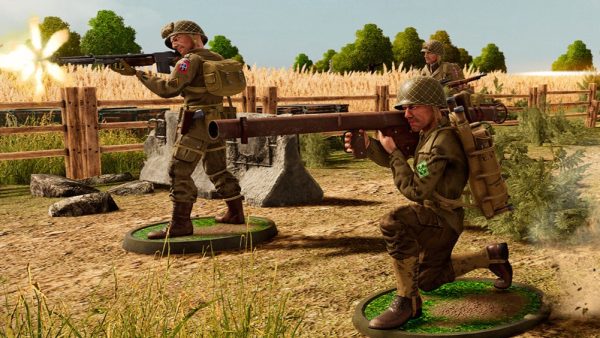


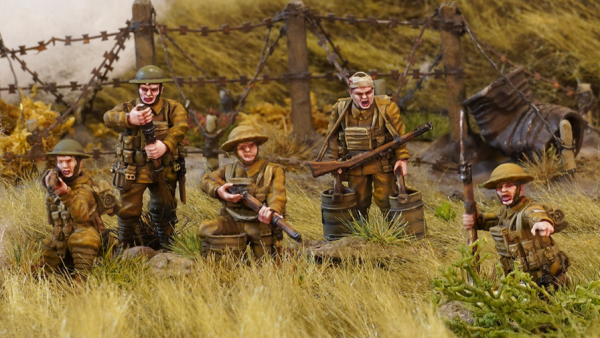


As a GM your there to guide the players and help the players enjoy themselves and sometimes take them out of their comfort zones. The biggest tip to remember it’s not the GM vs the players
I have been in games where it is GM vs players and it’s not fun.
And the GM is supposed to have fun too.
“And the GM is supposed to have fun too.”
Absolutely
It is definitely NOT the “GM vs the Players”.
I’ve been GM’ing since 1979…………..
My style is that of, I’m writing a story and I want the Players at the table to help me write that story. That doesn’t work if the GM is trying to ‘off’ the players. Plus folks will stop playing in your adventures if you continually go out of your way to kill the PC characters. If you find that players are not returning, you might want to check your style and make some corrections. 🙂
Lots of great tips here.
I think my biggest piece of advice is think about that kind of game you want to run and make sure your players are on board with it.
Some games lend themselves to lots of fighting and tactical combat. In this kind of game, know the rules is important, and using the rules, combos, tactics, etc. is how players get the sense of achievement. (Well, that plus the loot.)
If you (and your players) are more interested in narrative and storytelling, then you might want to pick a game with a simpler rules system so you don’t need to worry about it. Or you might be very explicit about fudging the rules. I once ran a game of Werewolf where I just asked players to roll their dice pool without setting a difficult level and then worked with them to narrate the outcome depending on whether it looked like a good roll or not.
If you know what you’re aiming to achieve you’re much more likely to be able to pick the right game and to be able to achieve it.